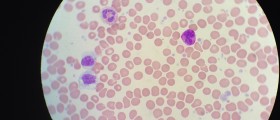
Telogen effluvium is condition when the hair stops growing and shed. Excessive amounts of hair may switch from growth phase (anagen phase) to dormancy (telogen phase). After several months, this problem results in condition known as telogen effluvium. This condition can be either acute or chronic, depending on how long it lasts. Acute telogen effluvium last up to 6 months, while longer (6 months or more) or persistent shedding of the hair is identified as chronic telogen effluvium. Chronic process is more likely to be seen in females, newborns and babies, especially to the end of their first year.
Healthy young person has about 90% of the hair in anagen phase and some 10% in telogen phase, while about 1% will be in transitional phase (catagen) of hair growth. So, for a healthy and completely normal person, it is OK to shed about 100 hairs every day. Things can be different for people diagnosed with telogen effluvium, since their hair is shedding much more than normal. It doesn’t have to include all hairs on the scalp and people suffering from this problem usually have less than 50% of the hair involved in this process.
Causes of Telogen Effluvium
Systemic problems in the body are known to lead to development of telogen effluvium. This is not something you could get using topical medications, but no one can be actually sure what exactly causes delayed shedding of the hair.
Some women may experience this condition several months after giving birth to a child, which is associated with hormonal changes happening in the body. In general, this resolves on its own after maximally one year.
Telogen effluvium may also be caused by different diseases, physical traumas, surgeries, heavy metal poisoning, serious loss of blood, anemia, thyroid problems (over or under active thyroid gland) or some serious psychological stress. Crash diet and menopause may also lead to excessive shedding of the hair several months later. Other conditions that might be associated with this hair problem are: jet lag, job changes, immunization and the use of certain medications. Some chronic diseases may also affect your body and hair and lead to telogen effluvium, especially systemic lupus erythematosus, liver problems and end stage renal disease. How to Treat It?
In real life, acute telogen effluvium is completely normal process. Because of that, patients usually need some reassurance that everything is going to be all right. This is just premature and synchronized process of shedding of large amounts of hair follicles and it usually resolves without any treatment. If there is something identified to have started this process it should be either discontinued (drugs) or treated appropriately (conditions or diseases). In all other cases, when there is nothing pathological about the shedding of your hair, rest assured it will grow again and you will have all your hair in some 6 to 12 months time.
















Your thoughts on this
Loading...